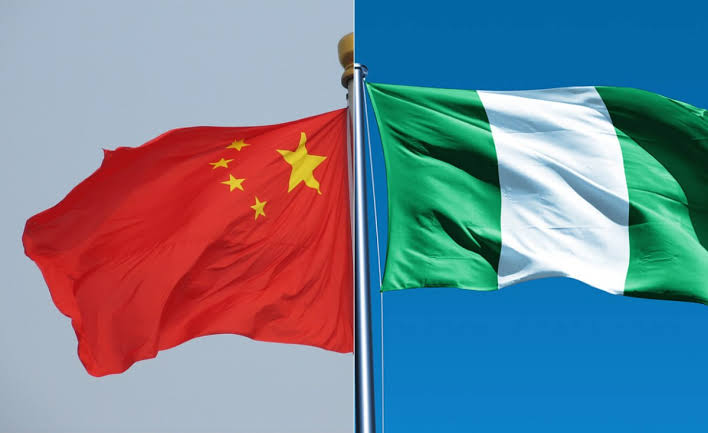Nigerian President Bola Tinubu just returned from China with a boatload of agreements he signed with his Chinese counterpart, Xi Jinping during his state visit and his participation in the 2024 edition of the Forum For China Africa Cooperation(FOCAC) in Beijing, the Chinese capital.
It was apt that one item dominated President Tinubu’s interaction with President Xi. The Nigerian leader exuded so much confidence in his government’s reforms to revamp and rehabilitate the troubled Nigerian economy and set it on the path of global reckoning.
Much as the Nigerian President waxed strong in his reforms proclamations, the Nigerian situation requires strategic thinking and fundamental changes in varied sectors that will trigger the desired change. It has become incumbent on the Nigerian leadership to emulate China in one or two areas.
This much was emphasized by the Chinese Ambassador to Nigeria, Yu Dunhai, on Thursday on the need for strategic reforms to alleviate the deplorable poverty that many Nigerians are grappling with at the moment.
The ambassador gave the advice during a Seminar on “Taking New Opportunities for China – Nigeria Cooperation in Deepening Reform in the New Era” organised by the Embassy in Abuja. He highlighted the importance of collaboration between the two nations, drawing from China’s own experiences in lifting about 800 million people out of poverty over the past few decades.
Yu outlined several key recommendations for Nigeria, focusing on enhancing agricultural productivity, promoting vocational training, and fostering infrastructure development.
“Poverty alleviation is not just about financial support; it is about creating sustainable opportunities,” he said, suggesting that Nigeria could benefit from adopting a multi-faceted approach similar to the one employed by China.
The Chinese envoy premised his exposition on the need to deepen investment in rural areas in Nigeria where poverty rates are significantly higher, just as China invested massively in lifting its rural communities from the clutches of poverty and strengthened the mechanism that ensured that those lifted out of poverty do not fall back to it.
For instance, China’s agricultural reforms in the late 20th century was a model, which involved introducing modern farming techniques, improving irrigation systems, and providing farmers with better access to markets.
In the same vein Nigeria’s agricultural sector has the potential to drive economic growth and reduce poverty but it needs to be driven by science, technology and innovation with education and vocational training as critical components of poverty alleviation.
Ambassador Yu Dunhai said “Investing in human capital is essential. China also invested a lot in educating its people from having 1 million students yearly to having over 13 million university students every year.
“We also provided vocational training for many people because we believe the vital role education plays in equipping young people with the skills is crucial for building a prosperous future.”
He also urged the Nigerian government to prioritise investments in roads, electricity, and transportation networks, which he believes are vital for economic growth and poverty reduction.
“Without adequate infrastructure, it is difficult for businesses to thrive and for communities to access basic services.
“China’s success in the electric vehicle market is an example of international competition driving innovation. There is significant improvement in transportation in China, from 15-hour train journeys to two-and-a-half hours,” he added.
Recall that in China over 300 reform measures are set to be achieved in the next five years because successful poverty eradication is attributed to continuous reform, which removes outdated practices and obstacles.
The envoy noted that it is important to open up and learn from other nations, but Nigeria must develop programmes and policies that are unique to its realities and fashion out a reform process that represents the Nigerian characteristics tailored for Nigeria’s needs.
It may not be necessary to copy other countries’ exact policies because no two countries are the same, Nigeria can learn from the Chinese experience by opening more its markets to genuine investments and exploring other bigger markets for its own products.
Every nation is shaped by its culture, history and interactions with the outside world. Nigeria has its unique history and culture as well as a vibrant people that can exchange knowledge and ideas and process information that can transform the nation.
At the event some Nigerian experts also expressed confidence that despite the current travails of Nigeria, the best is still possible. Muhammad Sulaiman, President of the Society of Nigerian Artists also stated the nation’s commitment in reforming the country.
He added that to a large and good extent, Nigerians have the intention to push forward towards a collective drive for the future of this great nation.
“Nigeria must develop its deepening reforms alongside China’s to help it create a complex and dynamic cultural landscape, marked by both continuity and change,”Sulaiman said.
During the celebration of the Mid-Autum Festival Salon Dinner in Abuja, a collection of Nigerian intellectuals and media experts brainstormed on the way forward for Nigeria.
Public intellectual, Dr. Austin Maho in his submission, said partnership with Nigeria has expanded the infrastructure base of the nation such as bridges, roads, seaports, airports rehabilitation, and charged Nigerians and their Chinese partners not to be distracted by fake news peddled against China.
On his part, the Director of the Center for China studies, Charles Onunaiju, believes that Nigeria must revive its moribund industries and stop corruption in critical sectors as the only guarantees for progress as China did in the last 40 years.











